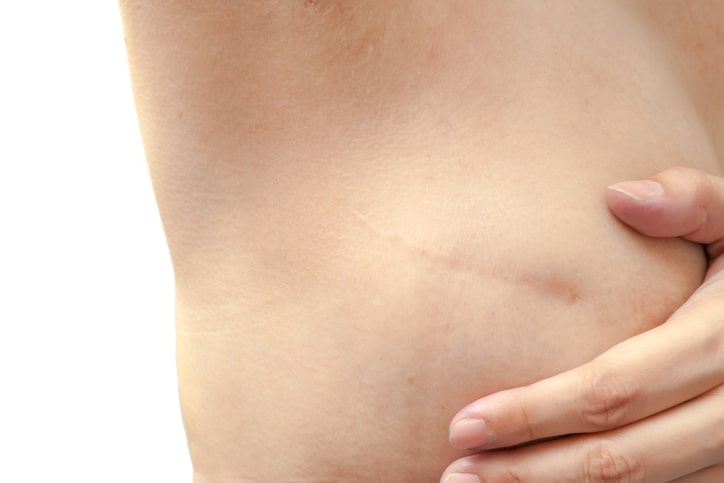
Scars wear like a badge of honor for some people, but most of us view them as something to hide. Often times, scars represent an imperfection of sorts, giving us pause when they are left uncovered.
Scarring goes beyond the physical, often spilling over into the emotional, causing people long-lasting self-image issues and lowered self-confidence. Such emotions stem from the memories of how the scar was caused, compounded by unhappiness about the look of the scar itself. Studies have shown that up to 23 percent of those with severe facial scarring suffer from depression and up to 45 percent suffer from post-traumatic stress disorder.
Many people with visible scars feel they are perceived differently and in effect, stigmatized, due to negative reactions from those around them. This leads to a feeling of being less attractive. Studies conducted in South Africa show that 40 percent of women are self-conscious about their scars, leading to feelings of embarrassment, anger, fear, anxiety and sadness.
Psychological impacts on the whole can stem from the traumatic events that led to the scars, such as car crashes, violent crimes and serious burns. According to the American Academy of Dermatology, physical appearance plays a large role in how people relate to each other, so it stands to reason that scarring that changes the physical appearance often has a negative impact on quality of life.
On the other side of the coin, positive feelings can arise from scars, such as with mothers who gave birth via Caesarian sections. However, those feelings of pride may still be overshadowed by the urge to hide and cover up those scars, especially when those mothers had traumatic experiences when giving birth.
The urge to cover scars with clothing, long hair, gloves, etc. helps people cope with their uncomfortable feelings about their scars. Sadly, many people stop engaging in activities that show their scars, such as wearing bathing suits at the beach, in an effort to hide their disfigurement and avoid questions about it from others.
One way to stop those negative feelings from consuming our lives is to reduce the appearance of scars. While extreme options exist such as scar reduction surgery, there are much less invasive ways to go about this. For example, silicone scar gels like Scarfade have been medically proven to slow down collagen production and reduce the appearance of scars. Such ointment can be used on anything from burns and cuts to surgical incisions and sports injuries.
Once the skin starts healing and the scar becomes less noticeable, those physical and emotional effects will lessen. That’s not to say the memories of the event that led to the scar will go away completely. However, it will go a long way toward improving the self-esteem and overall quality of life, helping people get over their feelings of embarrassment, sadness, anxiety and even anger.
Get back to doing what you love! Pick up some Scarfade today and start enjoying a healthier body image.
